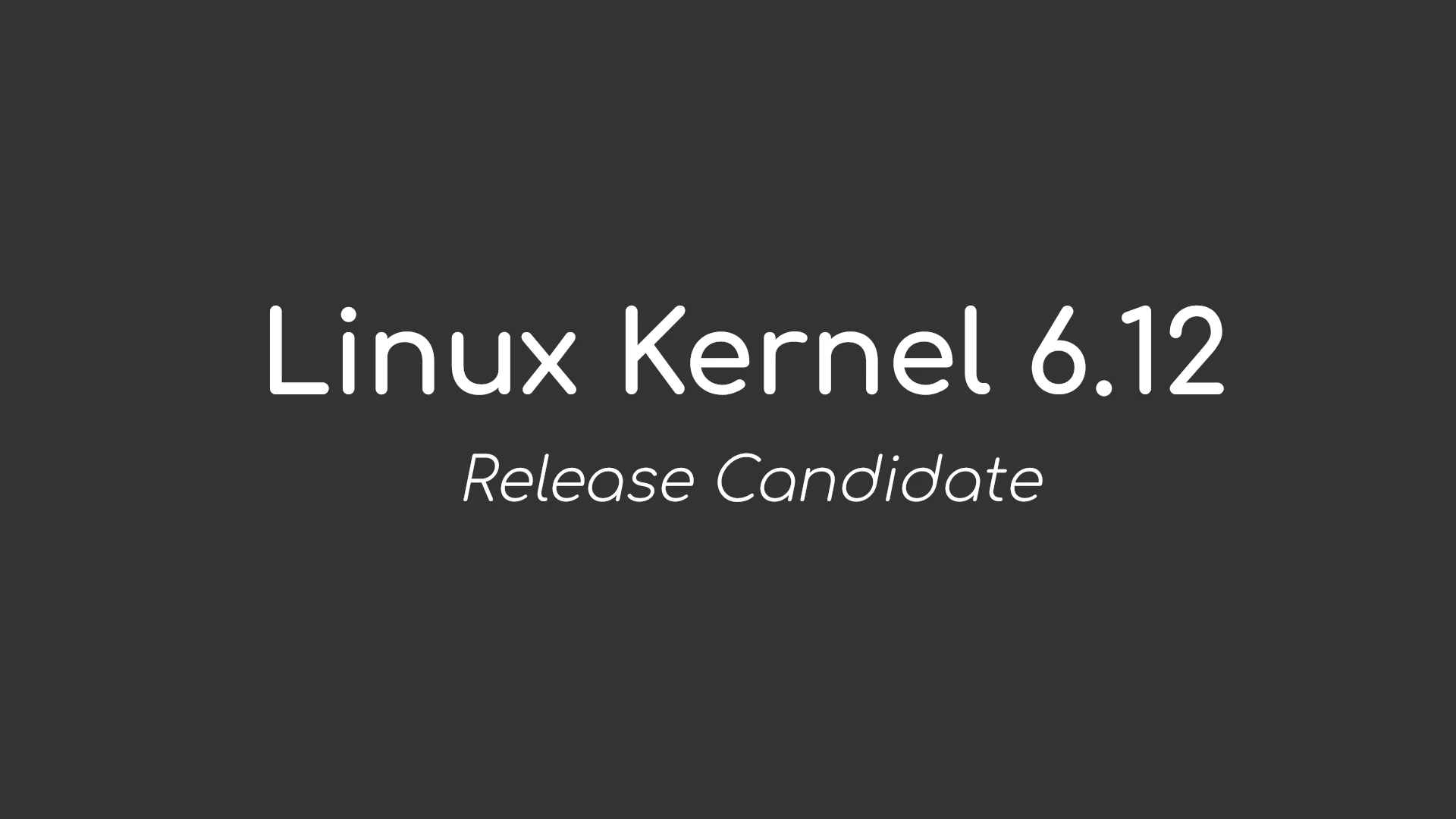Linus Torvalds announced today that the initial Release Candidate (RC) of the upcoming Linux 6.12 kernel series is now available for public testing.
This announcement comes two weeks after the merge window for Linux kernel 6.12 opened, coinciding with the release of Linux kernel 6.11. This marks the perfect opportunity to begin exploring the Release Candidate (RC) versions of the forthcoming Linux 6.12 series, with the first version now available for download from Linus Torvalds’ git repository here.
Among the notable updates in Linux kernel 6.12 are the introduction of real-time “PREEMPT_RT” support, a new scheduling system named sched_ext, enhanced Clang support (including LTO) for nolibc, and improved cpuidle tool capabilities to show the residency value of cpuidle states for a clearer understanding of idle state data via cpuidle-info. Additionally, it includes support for NVIDIA’s virtual command queue implementation for SMMUv3, the display of DRM panic messages as QR codes, and SWIG bindings for libcpupower to facilitate easier script writing that utilizes and expands the functionality of libcpupower.
New features also include the capability to convert normalized error addresses from an AMD memory controller into system physical addresses through a UEFI platform runtime mechanism (PRM), simplified microcode patch loading for AMD Zen and newer processors via the family, model, and stepping embedded in the patch revision, file-backed mount support for the EROFS file system, and the final updates to align with Intel’s new VFM CPU model matching macros.
Linux version 6.12 introduces a new module for testing the thermal core, which allows for the creation and management of mock thermal zones through debugfs to evaluate the thermal core capabilities. It also brings support for ACPI-based enumeration of interrupt controllers specifically for RISC-V, guest PMU support for LoongArch KVM, and the ability to use ARM’s “Permission Overlay Extension” alongside memory protection keys. Furthermore, it offers the capability to run as a protected guest on Android, as well as enhanced performance features and a variety of new interconnect PMUs.
In addition, Linux 6.12 enhances hardware support, incorporating features such as i.MX95 NETCMIX support within the block control provider, new drivers for the MSM8976 and MSM8937 platforms, and an updated driver for the ON Semiconductor LC824206XA micro USB switch along with an accessory detector chip used in Lenovo Yoga Tablet 2 Pro-1380. The version also includes hybrid CPU capacity scaling support through the intel_pstate driver.
Moreover, the intel_idle driver has been updated to natively manage Granite Rapids Xeon processors. The intel_rapl power capping driver now identifies family 1Ah of AMD processors, in addition to Intel ArrowLake-U chips, while the intel_pstate driver has been adapted to accommodate Granite Rapids and Sierra Forest chips operating in out-of-band (OOB) mode. Lastly, Linux 6.12 revises the PCM buffer allocation handling, enhances locking optimizations, and improves the USB audio driver.
Support has expanded for several controllers, including Marvell xSPI, Mediatek MTK7981, Microchip PIC64GX, NXP i.MX8ULP, and Rockchip RK3576. Additionally, a new driver is available for Realtek automotive PCIe devices (RTL9054, RTL9068, RTL9072, RTL9075, RTL9068, RTL9071), a new driver for Microchip LAN8650/1 10BASE-T1S MAC-PHY, and support for RTL8126A rev.b. There’s also a new driver for the Rockchip RK3568 CAN-FD controller, a new driver for the Sophgo SG2042 external hardware monitor, support for the PixArt PS/2 touchpad, alongside support for RTL8852BT and 8852BE-VT (Wi-Fi 6).
The growing list of supported hardware further includes ARM64-based Surface devices, operation region support for LG laptops, the ability to adjust battery charge settings on Dell laptops, and fan profiles support for ASUS Vivobook laptops. New hardware features such as high-resolution wheel scrolling, touch strings with relative motions, and two touch rings support in the Wacom driver have also been introduced. Additionally, a new 9p network gadget and Intel Xe2 graphics are enabled by default for Lunar Lake and Battlemage processors.
Moreover, Linux kernel 6.12 introduces notable networking enhancements, including Device Memory TCP support, which allows zero-copy reception of TCP payloads into a DMABUF memory region while packet headers are processed separately in standard kernel buffers. Other enhancements include IPv6 IOAM6 support for the new tunsrc encap mode, support for the IPv6 PIO p flag in the Prefix Information Option, and the capability to read the PTP PHC (Physical Hardware Clock) alongside MONOTONIC_RAW timestamps with PTP_SYS_OFFSET_EXTENDED.
Exciting news continues! The Linux kernel 6.12 introduces several enhancements, including support for continuous reads in the SPI-NAND subsystem. It also adds the ability to assign custom names to regmap irqdomains, facilitating the use of multiple interrupt controllers tied to a single struct device. Furthermore, it enables configuration of the MOSI pin state during idle bus conditions and incorporates ports of vDSO getrandom for the LoongArch64, ARM64 (AArch64), PowerPC, and s390x architectures.
In addition, RISC-V has gained new features such as the use of Zkr for seeding KASLR, IPI-triggered CPU backtracking, generic CPU vulnerability reporting to userspace, userspace stack tracing, and the Svvptc extension. The Linux 6.12 release also brings a host of improvements to filesystems including EXT4, Btrfs, exFAT, FUSE, F2FS, and Bcachefs, in addition to further updates in Rust, improvements to documentation, clean-ups, and various bug fixes.
The anticipated final version of the Linux kernel 6.12 is projected for release around mid to late November 2024, contingent on the number of Release Candidate (RC) stages announced by Linus Torvalds prior to that time. Therefore, if only seven RCs are released, we might see Linux 6.12 debut on November 17th, while eight RCs could push the release to November 24th.
Last updated 1 hour ago
